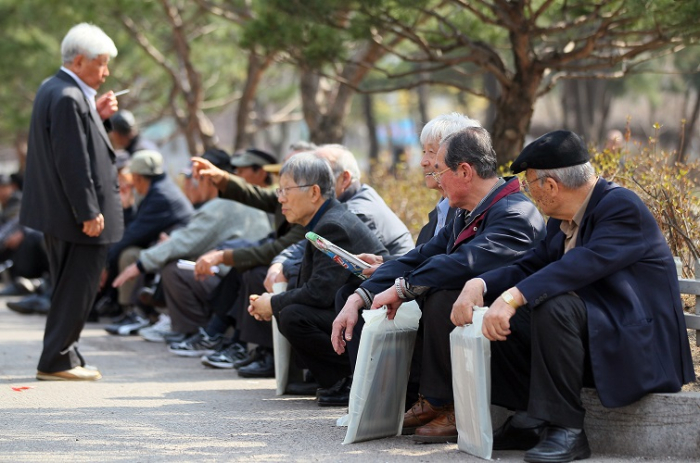South Korea, a nation celebrated for its technological advancements and cultural exports, has entered a sobering chapter in its demographic history.
The country has officially become a “super-aged” society, with 20% of its population aged 65 or older, according to recent data from the Ministry of the Interior and Safety. This stark reality highlights a deepening demographic crisis, mirroring challenges faced by other East Asian nations.
The Statistics Behind a Super-Aged Society
The latest figures reveal a striking demographic shift in South Korea. Of the country’s 51 million people, 10.24 million are now aged 65 or older.
This development places South Korea in the “super-aged” category as defined by the United Nations, which classifies societies with over 20% of their population in this age group.
The transition from an “aging society” (7%) to an “aged society” (14%) occurred rapidly, underscoring the speed at which South Korea is aging.
Read : North Korea Calls South Korean President “Puppet” for Declaring Martial Law
Women constitute a slightly larger proportion of this elderly demographic, with 22% aged 65 or older compared to 18% of men. This gender disparity is attributed to higher life expectancy among women, a trend observed globally.
Read : New Epidemic: Loneliness is Killing Middle-Aged People
The growing elderly population poses significant challenges, including increased healthcare demands, pension sustainability, and a shrinking workforce.
The Roots of South Korea’s Demographic Crisis
South Korea’s transition to a super-aged society is underpinned by its alarmingly low birth rate, which fell to just 0.72 in 2023—the lowest in the world. For a population to remain stable without immigration, a fertility rate of 2.1 is required. South Korea’s rate, however, has been in decline for years despite government efforts to incentivize childbirth.
Several factors contribute to this demographic challenge. The country’s demanding work culture, characterized by long hours and high stress, leaves little room for family life. Additionally, stagnating wages and the rising cost of living make parenthood financially daunting for many couples.

Changing societal attitudes toward marriage and gender roles have also played a pivotal role. Younger generations are increasingly delaying or foregoing marriage due to economic pressures and a desire for personal freedom. Traditional expectations surrounding women’s roles in childcare and household responsibilities further deter many from starting families.
Efforts to address these issues have included monetary incentives like “baby vouchers,” extended paid paternity leave, and campaigns promoting gender equality in childcare. Despite these measures, the birth rate continues to decline, signaling that deeper cultural and economic reforms are necessary.
Lessons from the Global Context and Future Implications
South Korea is not alone in facing the challenges of an aging population. Many European countries grapple with similar issues but have turned to immigration as a mitigating strategy. In contrast, nations like South Korea, Japan, and China have been reluctant to embrace mass immigration, complicating their efforts to stabilize working-age populations.
The economic implications of a super-aged society are profound. A shrinking workforce and a growing elderly population strain public resources, particularly in healthcare and pensions. South Korea’s rapid industrialization and economic growth in previous decades now stand in stark contrast to its current demographic stagnation.

To address these challenges, South Korea must consider a multifaceted approach. Beyond financial incentives, policies should focus on fostering work-life balance, improving job security, and creating affordable housing for young families. Encouraging a cultural shift toward more equitable gender roles is equally crucial.
President Yoon Suk Yeol’s recent call for a new ministry dedicated to tackling the demographic crisis reflects the urgency of the situation. However, as past initiatives have shown, throwing money at the problem without addressing its root causes is unlikely to yield significant results.
In the coming years, South Korea’s ability to adapt to its super-aged status will serve as a critical test of its resilience and innovation. By learning from the successes and failures of other nations, South Korea has the potential to turn its demographic challenge into an opportunity for societal transformation.

